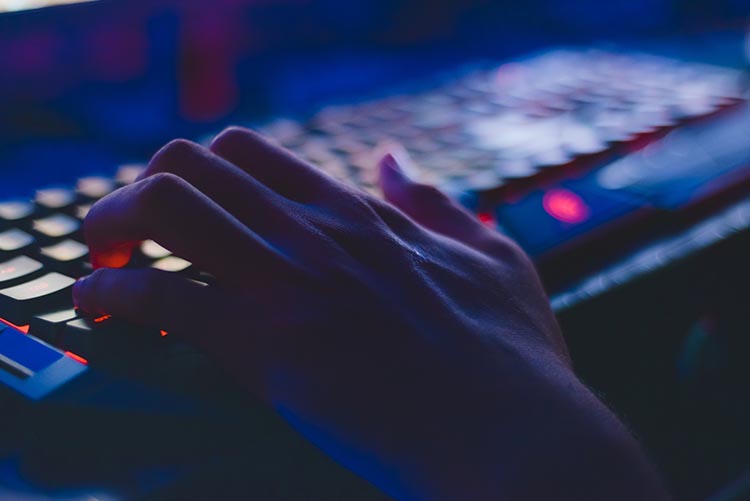 The Blockchain Game Alliance released a membership survey, revealing trends in the NFT gaming market. Ultimately, developers and other industry players are most concerned with regulatory uncertainty surrounding blockchain and NFTs. However, most brands are excited by the game-fi model and see it as a huge part of the industry’s future.
The Blockchain Game Alliance released a membership survey, revealing trends in the NFT gaming market. Ultimately, developers and other industry players are most concerned with regulatory uncertainty surrounding blockchain and NFTs. However, most brands are excited by the game-fi model and see it as a huge part of the industry’s future.
NFT Gaming Industry Challenges
There’s a lot of industry excitement around the play-to-earn gaming models facilitated by NFTs. However, it’s a nascent market, and pioneers in the space are encountering a few hurdles.
Nothing is insurmountable, but anyone thinking of getting into NFT gaming should accurately understand the landscape.
According to the Blockchain Game Alliance’s survey, member companies are most concerned about the following factors regarding NFT gaming:
- Regulatory Uncertainty: 52%
- Need for Education: 43%
- Technology Limitations: 42%
- Poor User Experience: 42%
- Gameplay Quality: 34%
- Lack of Technical Experts: 31%
- Lack of Industry Standards: 30%
- Difficult to Implement: 30%
- Too Niche: 26%
- Lack of on/off ramps: 22%
- Lack of Interoperability: 22%
- Insufficient Market Size: 20%
- Resistance from Incumbents: 13%
- Limited Applicability: 7%
- Too Decentralized: 2%
NFT Gaming: Need for Consumer Education
The second-largest concern among survey respondents was the need for education — and as far as we’ve seen thus far, it’s a valid point. While cryptocurrencies are gaining market ground, a percentage of the population remains skeptical about anything crypto-related. Some people think it’s a Ponzi scheme, and others only think of NFTs in the scope of collectibles.
To wit, Ubisoft was the first major game company to introduce NFT gaming elements in Ghost Recon Breakpoint, and they experienced negative push back. Other NFT startups have shuttered their doors within 24 hours because of severe community backlash. Notably, Steam, the digital distribution service, has banned all blockchain-based games for its platform for the time being.
The good news is that things are getting better, and big developers like EA are breaking ground on NFT gaming projects. Increasingly, people are starting to understand blockchain’s scope and how the technology can be leveraged to create new gaming and tech opportunities.
Nicolas Pouard, vice president of the strategic innovation lab at Ubisoft, explained:
“By positively shifting the balance of power towards players, blockchain can make for a fairer, more player-centric experience. Traditional gaming will never disappear, but it will surely evolve, granting players more control than ever over their experience.”
NFT Gaming’s Bright Future
While obstacles still exist in the game-fi world, 68% of survey respondents said play-to-earn models are one of the leading forces driving the industry forward. Over the past several years, they’ve fueled market innovation and growth. Practically speaking, in some developing regions in Latin America and the Philippines, popular game-fi platforms like Axie are becoming a valid source of income, and a mini-economy is growing around the game.
But gameplay remains a top priority at the end of the day. An overwhelming 83% of respondents maintain that game quality will forever be the most crucial factor in whether a platform sinks or swims. You can have a zillion games built on new technologies, but if they don’t grab users’ imaginations, they’re worthless.
Investment interest is another indicator of a healthy and growing market. According to BlockchainGamer.biz, investors funneled $4 billion into blockchain gaming in 2021, including Andreessen Horowitz (a16z), Arca, Bitkraft Ventures, Coinbase, Galaxy Interactive, and Softbank.
Decentralized autonomous organizations — aka DAOs — are also funding game-fi startups. According to reports, 3D Gamers Guild, AngelDAO, Avocado Guild, BlackPool, BlockchainSpace, Good Games Guild, Merit Circle, Ready Player DAO, UniX Gaming, and Yield Guild Games have all backed an NFT gaming venture. Blockchain incubators are another source of development resources.
NFT Gaming Legalities
Intellectual Property
Many NFT gaming lawsuits currently making their way through the system are rooted in intellectual property disputes. Issues are arising because people who own IP rights to underlying NFT content aren’t being compensated in many sales and re-sales.
Moving forward, all creative and development contracts should address IP rights related to NFTs.
Gambling
Gambling regulations can also be a legal hurdle for NFT games and projects. All states have some sort of gambling rules on the books. Granted, some are more lenient than others, but if you plan to release a game that’s accessible to everyone in the country, compliance is of paramount importance. And don’t forget about the international regulations.
Anti-Money Laundering / Know Your Customer
Fraud and anti-money laundering laws apply to crypto and NFT transactions. To ensure you’re compliant, consult with an NFT lawyer. Jurisdictional considerations and other factors will determine how you can stay on the right side of the law.
Connect With an NFT Lawyer
The Kelly Law Firm works with individuals, businesses, and startups on all manners of cryptocurrency, blockchain, and NFT issues. As early adopters, we intimately understand the industry and applicable state, federal, and international regulations. If you’re ready to consult with an attorney, let’s talk.





